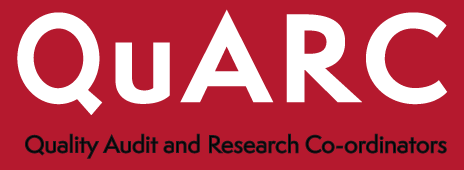Super-SNAP1
Data collection for Super-SNAP1 has ended and our Fellows are working hard to analyse the data. Thank you to all of the amazing individuals who helped us run this study. We will post results here in due course.
The HSRC, in collaboration with UCL and the University of Nottingham, is excited to announce our first "Super-SNAP" - a simple, rapid, service evaluation which will generate clinically and operationally important and unique data.
The topic for Super-SNAP1 will be cancellations and delays to surgery.
Why do we want to do this study?
Our colleagues around the country are increasingly beleaguered as a result of the pressures on acute and critical care, and the impact this is having on delivering surgery. We know that cancellations are rife and service efficiency can be poor, and that this is causing massive disruption to lists, colleagues and most importantly to patients.
The purpose of Super-SNAP1 is to help inform NHS England and Improvement, and administrations in the devolved nations, about the current rates and reasons for cancellations, the type of surgery being done and the challenges faced by surgical/perioperative teams. We want to be able to identify any variation between countries and types of hospital in order to support policy making around equitable access to care as we remain so busy in theatres and critical care.
The NHS collects data on waiting list times, hospital or critical care "stress" (using OPEL and CritCon scores), hospital and critical care occupancy and so on, which we hope to be able to link your data to, in order to develop a rich picture of the challenge being faced by different trusts, systems and regions, to inform the national debate on elective recovery and critical care / perioperative capacity.
What do we want to do?
We want to undertake a very simple two-day service evaluation which will answer the following questions:
- What is the current rate of last-minute cancellation for planned surgery and what are the reasons / risk factors for cancellations?
- Is operating/interventional list efficiency and productivity being affected by factors outside your control - e.g. uncertainty over bed availability, IPC issues, availability of staff
- Is there variation in operating list characteristics, efficiency and cancellations between different parts of the country, or between hospitals of different types (e.g. acute vs. 'cold' site; big tertiary centre vs. smaller DGH etc)
- Is emergency surgery being provided within the desired timeframe for patients?
What will it involve?
For two days (48h), on Tuesday 11th and Wednesday 12th January, we will ask you to collect four short datasets (ideally to be completed directly online, but we will provide pdfs if paper is preferred for initial data collection
- Basic demographics about patients cancelled on the day or the day before planned surgery (one form per patient to be completed by the anaesthetist/surgeon on each operating / interventional list - should take less than a minute per patient)
- Basic demographics about patients having emergency surgery and the timeliness of their surgery (one form per patient to be completed by the anaesthetist/surgeon on each operating / interventional list- should take less than a minute per patient)
- A brief questionnaire providing an overview of the efficiency of operating / interventional lists (one form per list to be completed by the anaesthetist ideally with the surgeon- should take less than 3 minutes per location)
- A brief questionnaire providing an overview of all surgical/interventional activity on each day of the study (one form to be completed per day by the local lead or their delegate - should take between 3 and 10 minute each day)
We will add further information to the website in due course. You can also find study documentation and FAQs here
What do we need you to do?
Please volunteer yourself or a colleague to lead this project locally. We have written to NAP7 coordinators in every NHS hospital, so please approach them to find out if your hospital has registered, if you are interested in helping / leading locally.
Once you have decided on a local lead please (ask them to) follow this link to complete a very short questionnaire (2 min) to register your site. https:www.tfaforms.com/4952057
Do involve trainees and non-medical staff to help coordinate. All local investigators whose names are provided to us will be eligible for collaborator status on future publications which arise from the study.
Please let us know of any questions, but check our FAQs first to see if they are answered there.
What next?
We will be holding live webinars at 12.30pm on Wednesday 15th December and Friday 17th December to talk about the study, explain what will be required and answer any questions. We will also record these. The links for the two webinars are:
- Session 1: Wednesday
When: Dec 15, 2021 12:30 London
Topic: Super-SNAP webinar for collaborators
Please click the link below to join the webinar:
https:us02web.zoom.us/j/87980946199
Passcode: 519883
- Session 2: Friday
When: Dec 17, 2021 12:30 London
Topic: Super-SNAP webinar for collaborators
Please click the link below to join the webinar:
https:us02web.zoom.us/j/86105353913
Passcode: 953351
We know that this is a very busy and difficult time for you and your teams, but we hope you will agree that this is a worthwhile project and we hope that you and your colleagues will be able to support it.
In the meantime, thank you as always, for everything you are doing for your patients, your hard work and perseverance.







